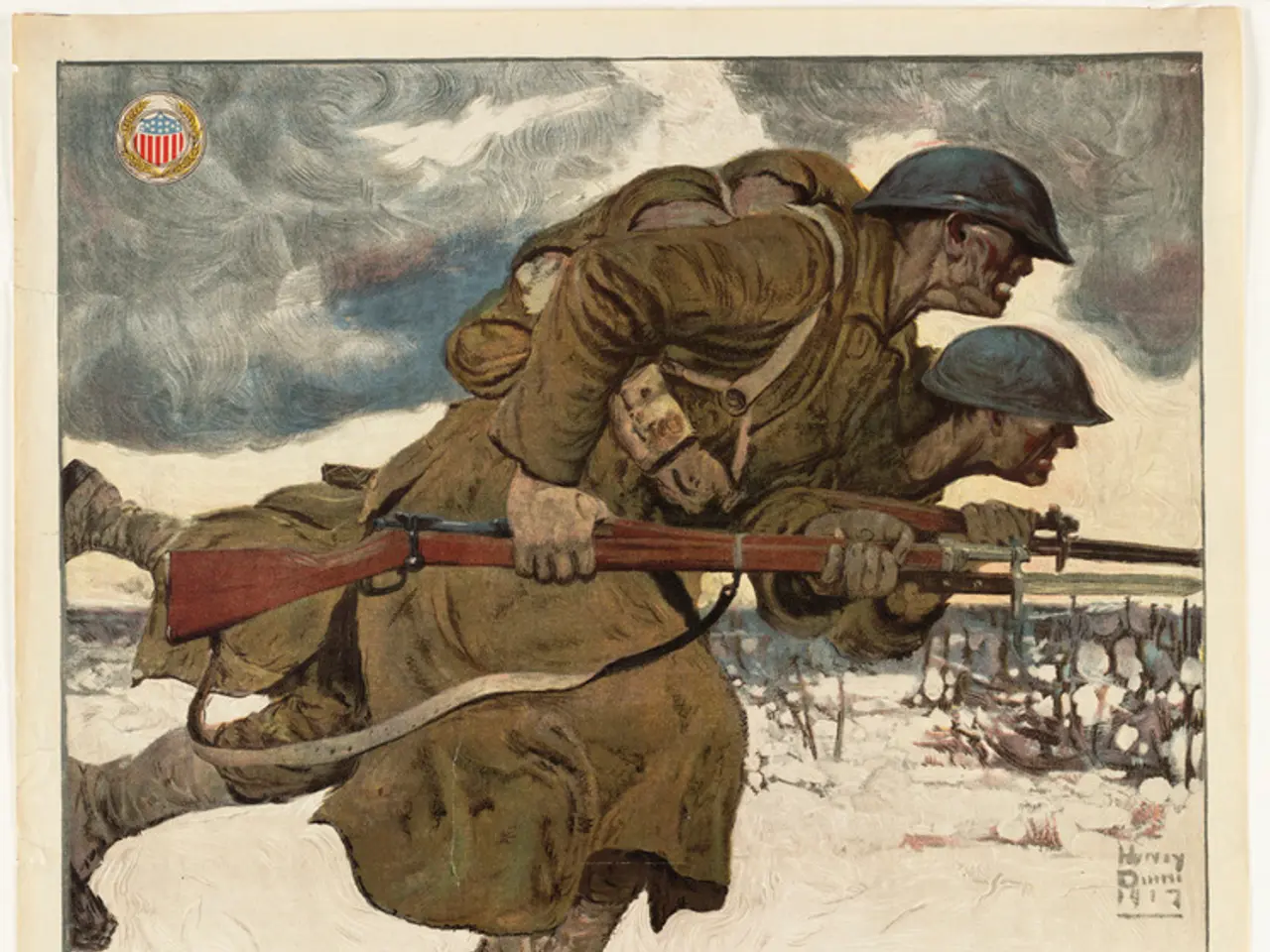Pakistan's counter-terrorism dialogue with the U.S. saw the reaffirmation of America's commitment to battling terrorism in all its manifestations.
The United States and Pakistan held a counterterrorism dialogue in Islamabad on August 12, 2025, with high-level officials from both countries reaffirming their shared commitment to jointly combat terrorism in all its forms[1][2][4]. The dialogue aimed to advance the shared resolve of the US and Pakistan to combat terrorism, focusing on threats from groups such as the Baluchistan Liberation Army (BLA), ISIS-Khorasan (ISIS-K), and Tehrik-i-Taliban Pakistan (TTP).
The round of dialogue highlighted several key points:
- A pledge for stronger joint action against these terror groups, reinforcing cooperation.
- U.S. praise for Pakistan’s efforts in countering these threats regionally and globally.
- Sympathy expressed for victims of recent terror attacks in Pakistan, including tragedies involving the Jaffar Express and Khuzdar school bus attacks, indicating shared humanitarian concerns alongside security cooperation[1].
- This engagement follows the U.S. designation of the Resistance Front (an offshoot of Lashkar-e-Taiba) as a foreign terrorist entity, underlining increasing U.S. scrutiny of extremist groups in the region[1].
The dialogue was co-chaired by Pakistan’s Special Secretary for the United Nations, Nabil Munir, and the U.S. Department of State’s Acting Coordinator for Counterterrorism, Gregory D. LoGerfo, demonstrating high-level diplomatic importance[1][5].
The implications of these developments include:
- Reinforced US-Pakistan security relations focused on counterterrorism collaboration, which is critical for regional stability in South Asia.
- A possible indirect impact on broader geopolitical dynamics, with India closely monitoring these engagements and continuing to raise concerns about Pakistan’s military cooperation with China and terrorism support, leveraging ties with the U.S. for stronger international action[3].
- The dialogue signals Pakistan’s intention to be seen as a partner in global counterterrorism while the U.S. aims to solidify cooperation in a strategically sensitive region.
- It may also influence future aid, intelligence sharing, and joint operations between the two countries as they address multi-faceted terror threats.
This evolving counterterrorism partnership comes amid ongoing regional challenges and attempts to curb extremist violence via diplomatic and operational collaboration[1][2][4]. Notably, Pakistani authorities detained and extradited Sharifullah, also known as Jafar, to the United States in March. Sharifullah is alleged to have helped carry out the 2021 suicide bombing outside Kabul airport, which resulted in the death of at least 170 Afghans and 13 US troops[6]. The US has also toughened the ban on the Baloch Liberation Army on Monday, following the listing of the Baloch Liberation Army and Majeed Brigade as foreign terrorist organizations by the US State Department the day before the dialogue[7].
The US engagement with Chief of Army Staff Field Marshal Asim Munir has increased recently, adding another layer to the developing partnership between the two nations. The US remains committed to its cooperation with Pakistan in combating terrorism, signaling a continued focus on addressing regional threats together.
- In light of the ongoing counterterrorism dialogue between the United States and Pakistan, there may be a focus on general news related to crime and justice, as the US has recently toughened the ban on the Baloch Liberation Army.
- The US-Pakistan counterterrorism dialogue, which includes discussions on war-and-conflicts like the threats from groups such as the Baluchistan Liberation Army, ISIS-Khorasan, and Tehrik-i-Taliban Pakistan, also has political implications, as it may influence future aid, intelligence sharing, and joint operations between the two countries.







